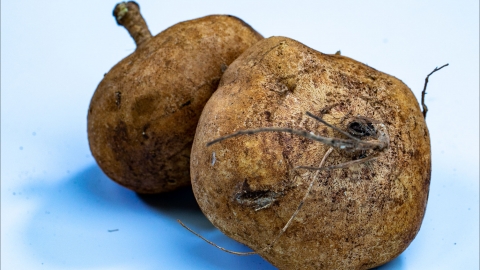Can you still eat sweet potatoes after they have sprouted?
Generally speaking, whether sprouted sweet potatoes are edible depends on specific conditions. Sweet potatoes that have only slightly sprouted without signs of rotting or mold can be consumed after thoroughly removing the sprouts and surrounding areas. However, if the sprouting is accompanied by rotting or mold, it is not advisable to eat them. Detailed analysis is as follows:

When a sweet potato sprouts, some nutrients are redirected to the growth of the sprouts, resulting in reduced sweetness and inferior texture. However, unlike potatoes, sprouted sweet potatoes do not produce toxic substances. If the sweet potato has only sprouted slightly, with a smooth skin free of black spots or decay, and the inside is odorless and mold-free after cutting, it can still be safely consumed. In this case, thoroughly remove the sprouted parts and about 1-2 cm around them, wash well, and cook normally. Consumption of such sweet potatoes typically does not pose a health risk.
If the sweet potato has sprouted extensively, has black spots or indentations on the skin, or appears brown or black inside after cutting, along with an unpleasant odor or a soft, mushy texture, it indicates spoilage has occurred. Bacteria or mold may have proliferated, and consumption may irritate the gastrointestinal tract, causing discomfort symptoms such as nausea, vomiting, and diarrhea. Such sweet potatoes should be discarded and not consumed.
In daily life, sweet potatoes should be stored in a cool, dry, and well-ventilated environment, avoiding direct sunlight and moisture to prevent premature sprouting or spoilage.






